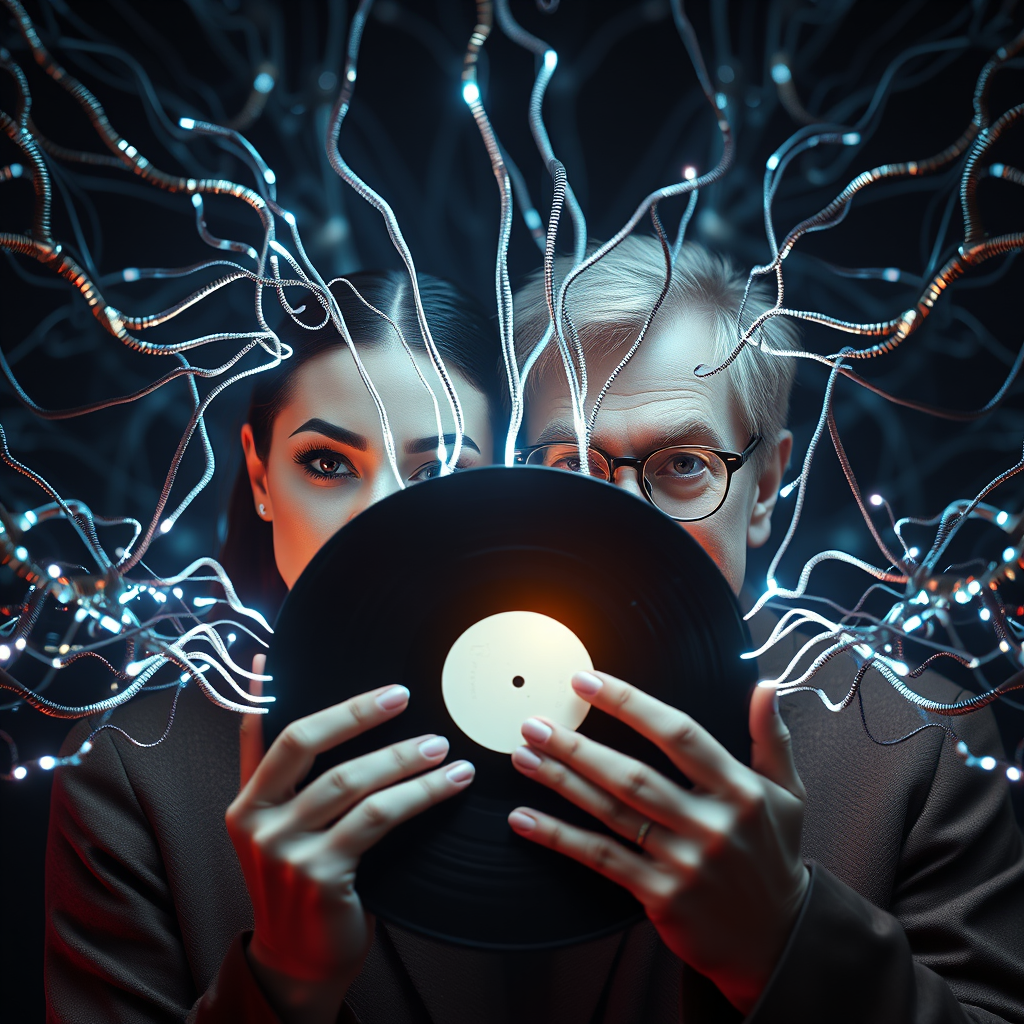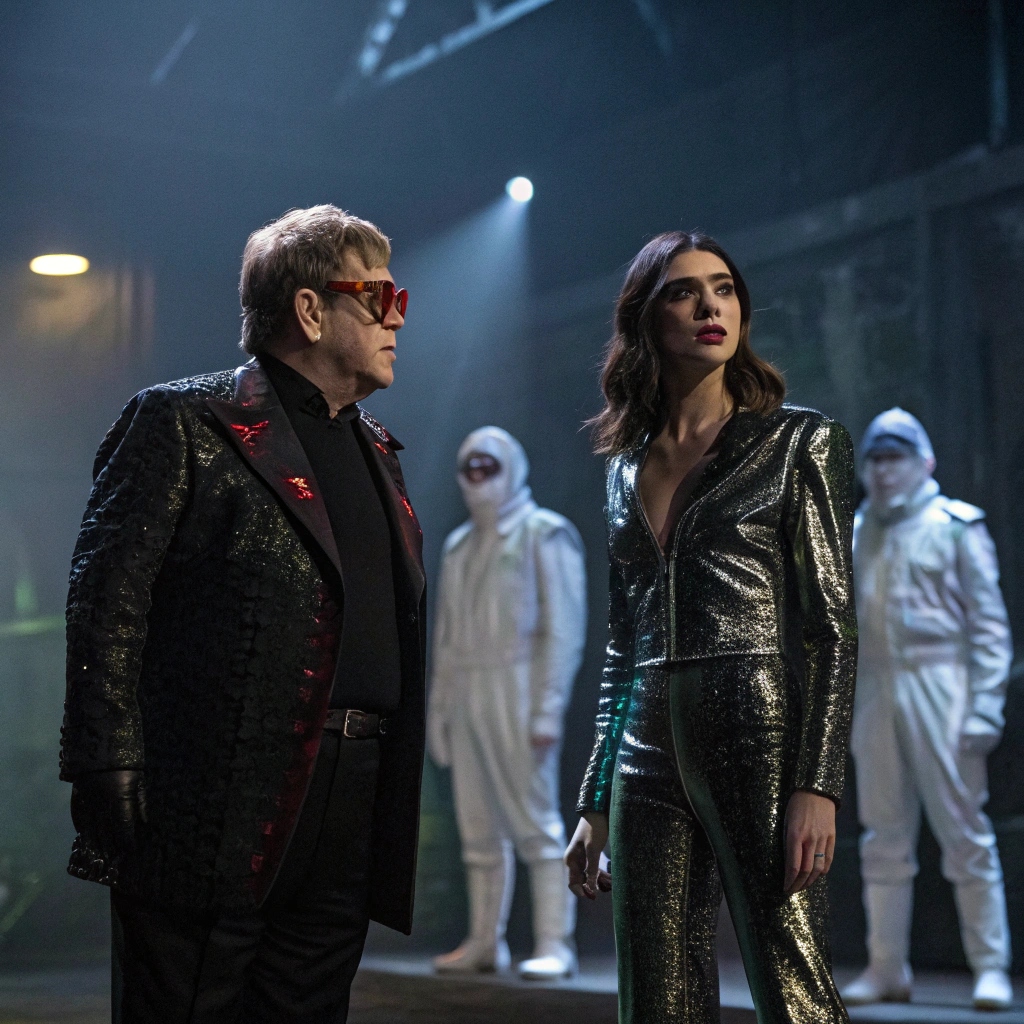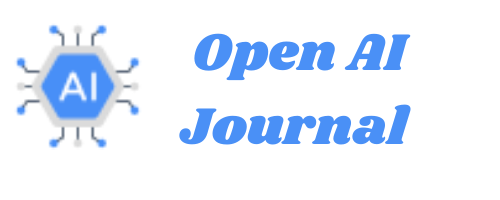Elton John and Dua Lipa Seek Protection from AI – Artists vs Algorithms in the Battle for Creative Rights

Table of Contents
I. Introduction
When two of the world’s most iconic music figures—Elton John and Dua Lipa—seek protection from AI, it’s not just a celebrity headline. It’s a warning flare for the entire creative industry.
In early 2025, the pair joined over 400 UK artists—including Paul McCartney, Coldplay, and actor Ian McKellen—in signing an open letter to Prime Minister Keir Starmer. The message was clear: artificial intelligence (AI) is already using artists’ intellectual property to train its systems—often without consent or compensation—and the law needs to catch up.
In a time when AI can clone voices, replicate lyrics, and generate entire songs in an artist’s style, the UK’s cultural icons are calling for urgent updates to copyright laws. Their campaign is more than just self-preservation; it’s about protecting the soul of human creativity.
II. Background: How AI Is Changing the Creative Landscape
A. What Is Generative AI in Music?
Let’s step back for a moment. Generative AI refers to technology that can create content—text, images, music, even video—based on patterns it learns from massive datasets. In music, tools like Google’s MusicLM, OpenAI’s Jukebox, and countless AI voice-mimicking platforms can generate eerily accurate impersonations of popular singers.
These systems are trained on thousands of hours of songs and lyrics, often scraped from the internet. While fascinating from a tech perspective, there’s a growing unease: is this innovation or just high-tech plagiarism?
B. The Rise of AI-Created Content
AI-generated content isn’t hypothetical. In 2023, a TikTok song called “Heart on My Sleeve” went viral because it sounded like a duet between Drake and The Weeknd—except neither artist had anything to do with it. It was entirely AI-generated.
That incident was a wake-up call for many in the music world. AI can already mimic voice, tone, cadence, and lyrical style with shocking accuracy. Now imagine this happening to hundreds of artists, every day, without them knowing or getting paid. That’s the future Elton John and Dua Lipa are pushing back against.
C. Ethical and Legal Grey Zones
Here’s the crux: under current UK law, AI companies can scrape publicly available data—including songs, scripts, books, and art—to train their models, unless creators explicitly opt out. That sounds simple in theory but creates a burden on artists to constantly defend their work from being exploited.
The lack of transparency from tech companies about what datasets they use adds another layer of concern. Without updated copyright laws, artists have little legal ground to demand accountability or compensation.
III. The Spark: Why Elton John and Dua Lipa Are Taking a Stand

A. The Open Letter to Prime Minister Keir Starmer
On May 7, 2025, a coalition of over 400 creatives signed a powerful open letter addressed to UK Prime Minister Keir Starmer. Among the names were Elton John and Dua Lipa—two of the most streamed and influential British artists of the past decade.
The letter called for support of an amendment to the Data (Use and Access) Bill, introduced by Baroness Beeban Kidron, which would require AI developers to disclose the specific copyrighted content used to train their systems.
“Failing to act now will destroy the UK’s leadership that has been hard-won by generations of creators,” Elton John warned. Paul McCartney echoed this concern, saying the AI loopholes threaten to “strip artists of ownership, voice, and control.”
B. The Role of Baroness Kidron’s Amendment
Baroness Kidron’s proposed amendment is a pivotal moment. It would legally compel companies using AI to be transparent about their training data. This seemingly small addition to the broader Data Bill is, in fact, a potential game-changer for protecting artists from AI exploitation.
It shifts the burden of proof from creators to corporations, forcing AI companies to ask for permission rather than forgiveness.
IV. What Creators Are Afraid Of
A. Loss of Control Over One’s Voice and Image
Imagine pouring your soul into music for decades, only to have a machine replicate your voice and sell a fake song in your name. That’s not fiction—it’s already happening.
Elton John and Dua Lipa seek protection from AI because they understand that a voice is more than sound—it’s identity, artistry, and legacy. AI doesn’t just copy sound waves; it appropriates personality.
B. Exploitation Without Compensation
According to the UK’s Intellectual Property Office, the creative industries contribute over £126 billion annually to the economy. Yet AI companies currently train their models on the work of artists—without licenses, royalties, or even notice.
This imbalance is unsustainable. It’s like training a chef bot on Gordon Ramsay’s recipes and then opening a restaurant without cutting him in.
As someone who works with independent musicians, I’ve seen firsthand how AI-generated “covers” of original songs can outperform the real thing on streaming platforms. It’s devastating, both emotionally and financially.
C. Long-Term Economic Threats
AI threatens to turn creativity into a commodity. Why hire a lyricist when ChatGPT can do it? Why record a singer when you can clone a famous voice?
For new and emerging artists, this could choke off future income streams. If copyright laws don’t evolve quickly, the next generation of musicians may never have a fair shot.
V. Industry Responses: Support and Silence
A. The Music Industry’s Split
The response within the music industry has been mixed. Some record labels support the call for stronger copyright laws—after all, they own many rights themselves. But others are hedging their bets, hoping to license catalogs to AI firms for big payouts.
This raises ethical questions: can corporations “sell” an artist’s voice to an AI company without their consent? Without stronger laws, the answer might soon be yes.
B. What Tech Giants Say (or Don’t Say)
Major AI firms like OpenAI, Google DeepMind, and Anthropic have mostly avoided transparency when it comes to their training data. Some, like OpenAI, have acknowledged the importance of fair use—but have not committed to disclosing their sources.
This lack of clarity frustrates artists and rights advocates alike. Without disclosure, how can anyone prove their work was used—or fight back if it was?
VI. Government Action: Will the UK Lead or Fall Behind?
A. Starmer’s Response (So Far)
As of now, Prime Minister Keir Starmer’s government has proposed alternative amendments to the Data Bill but has not endorsed Kidron’s full transparency requirement. They argue that AI innovation must remain competitive.
But that argument is short-sighted. The UK’s cultural dominance in music, film, and literature depends on protecting creators. Allowing unchecked data scraping undermines the very industries that make Britain a global cultural powerhouse.
B. The House of Lords Vote
A crucial vote in the House of Lords is expected soon. If Baroness Kidron’s amendment is passed, it could set a global precedent. If it fails, the UK may fall behind countries like Germany and Canada, which are already exploring stronger AI copyright rules.
VII. A Global Problem, Not Just a UK One
A. International Copyright Challenges
In the U.S., the Copyright Office is investigating how AI training data should be regulated. Japan allows AI training on copyrighted material without permission, while the EU is drafting rules requiring dataset transparency.
This patchwork approach creates legal uncertainty. Artists operating in global markets need consistent protections, regardless of where their work is consumed or mimicked.
B. The Need for Unified Action
It’s time for international copyright reform. Artists, lawmakers, and platforms need to collaborate on a framework that upholds creative ownership in the age of AI.
Imagine a global licensing registry where artists opt in—and get paid—whenever their work trains an AI model. It’s complex, but not impossible. And it’s necessary.
VIII. What This Means for Future Artists and Fans
A. Will AI Undermine Human Expression?
There’s a philosophical issue here too. Music is deeply human—born of struggle, love, history, and emotion. If AI becomes the dominant tool in music creation, will we lose that authenticity?
Elton John and Dua Lipa seek protection from AI not just for themselves, but to preserve the soul of music for future generations.
B. The Role of Fans and Consumers
Consumers have power. By choosing to support real artists, rejecting AI clones, and demanding ethical transparency from streaming services, fans can help shape the future.
Remember when Spotify removed AI-generated songs mimicking Drake? That only happened because fans pushed back.
IX. How Artists Can Protect Themselves Now
A. Legal Tools and Resources
Artists should begin watermarking their work and registering songs with collecting societies. Using AI detection tools can also help identify where their voices or styles are being misused.
B. Forming Alliances and Advocacy Groups
Coalitions like the UK’s Creative Rights Alliance are already fighting for these changes. The more artists speak up—especially big names like Elton and Dua—the more likely lawmakers are to listen.
X. Conclusion: A Turning Point for Creativity in the AI Age
We’re standing at a crossroads. AI is not inherently evil. It can enhance creativity, streamline production, and offer amazing tools. But when it begins to replace human artists without their consent, we have a problem.
That’s why Elton John and Dua Lipa seek protection from AI. Not out of fear, but out of a fierce love for their craft, their legacy, and the generations of musicians yet to come.
The question isn’t whether AI will play a role in the future of music. It already does. The question is: will artists still have a say?
Let’s make sure the answer is yes.

